Sleep tips for people who suffer from anxiety
Last updated on - May 26, 2019, 09:44 ISTShare fbsharetwsharepinshare
01/16If you have trouble nodding off, these tips will help...

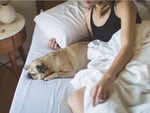
Between hectic work schedules and calendars that are filled with scribbles and notes, getting some sleep is quite an issue with most today. And amidst that, if you are someone who suffers from generalised anxiety then nodding off is all the more difficult. Well, today we have brought you sleep tips to help with just that. Read on and consider implying these tricks if you are someone who has anxiety and finds it difficult to sleep easily.
02/16Calm your mind


If you are suffering from anxiety, trying to calm your mind can be a huge challenge. But taking some time to make a little effort to practice this can help you improve your sleep quality in ways you couldn't imagine. You could start with breathing exercises just before bed. You could experiment with different techniques to try to find what works for you. This will also help you identify what triggers your anxiety.
03/16Limit screen time

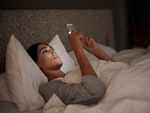
Give your phones and other digital devices a break. Spending too much time on them, especially at night forces the brain to stay awake. If you want to watch that funny video or send an email, do it before bedtime and preferably away from the bedroom. If you are finding it hard to stick to this challenge, set an alarm to signal when it's time to switch off from all devices. Instead, listen to some soft music or read that book you've been meaning to finish. Making an effort to live device free for even a little while in your day can help you sleep better.
04/16Deep breathing


Deep breathing helps to bring calm to your nervous system, which helps to tackle issues like insomnia. This practice also helps to prepare your body for bedtime. It may be a bit of a challenge the first few times, but don't give up. Like any exercise, training your breath takes time to perfect. You will get better at it the more times you do it. Other relaxation techniques you can try are meditation and yoga. Try different methods to find what suits you and that will help release stress.
05/16Seek help

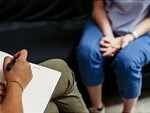
Sometimes the root cause of feeling anxious is deeper than you realise. Switching off from digital devices and taking hot baths may not do the trick in helping you sleep better. That's when you know it's time to seek help and get professional advice to manage your anxiety. Sleep disorders and mental health issues are treatable. By seeking advice from a professional you'll be able to understand what is causing the issue and find treatments that cater to your specific needs so you can sleep better.
06/16Avoid snacking at night

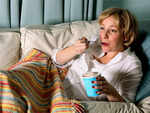
After you eat dinner, try to avoid eating after that. Restrain from getting out of bed at night to head for a snack. If you must, then stick to a light and healthy snack and avoid heavy and oily foods. Snacking at night also could eventually lead to obesity if you do not exercise regularly.
07/16Eliminate napping

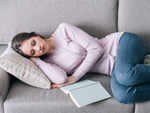
Napping is anyway not a good habit and if you seem to be struggling with sleeping due to anxiety. It’s one thing you definitely need to stop, effective immediately. Napping in the day is known to hinder sleep and if you must nap, ensure you do it sometime early afternoon. If you opt to nap late in the afternoon, it might interfere with your ability to fall asleep at night.
08/16Quit smoking


Nicotine is a stimulant and can interfere with sleep. Until you do quit, limit your cigarettes in the few hours before you go to bed. Several studies prove that smoking causes anxiety and it will be best to quit the bad habit altogether.
09/16Dim the lights

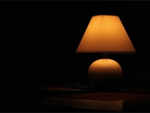
Start dimming the lights around the house a few hours before your bedtime. Change a few lightbulbs to a lower wattage; that way you can turn off the brighter lights and still have some light. The lower light level will signal your body to produce melatonin and get ready to go to sleep.
10/16Limit your caffeine and alcohol intake


Drinking too much caffeine or consuming it too late in the day can increase anxiety. Consuming alcohol close to bedtime can increase one's heart rate and will keep the person alert and up. Drink plenty of water throughout the day, but don’t drink too much before bedtime, as trips to the bathroom too can make you anxious and keep you feeling overly alert too.



